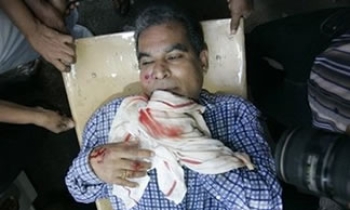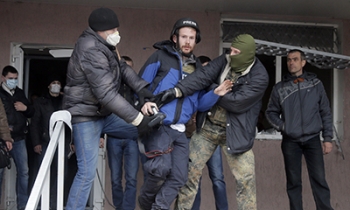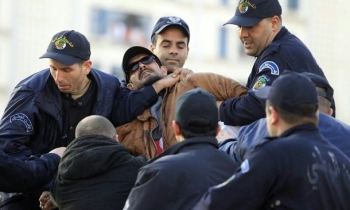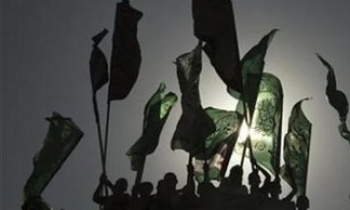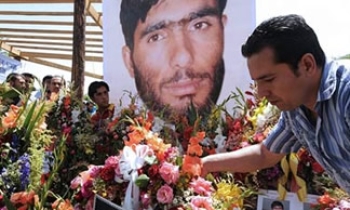Tunisian authorities have pressed charges against against TV reporter Fahem Boukadous because of his coverage of this year’s protests in the Gafsa mining region, 350 km south of Tunis. This he did for the independent Tunisian TV station Al-Hiwar Attounsi, Reporters sans Frontières (RSF) has reported. Boukadous is also charged with putting foreign news media in contact with labour leaders in Gafsa.
Boukadous, who went into hiding on July 5, is wanted by the authorities on charges of “belonging to a criminal association” and “spreading reports liable to disrupt public order.”
Radhia Nasraoui, a lawyer who heads the Association for Combating Torture in Tunisia (ALTT), told a RSF delegation in Tunis on November 11, “The indictment accuses Boukadous of establishing contacts with the demonstrators for his reporting. Whenever his name is mentioned, it is in connection with his work as a journalist.”
Paris-based RSF reacted, “The Tunisian authorities cannot keep reiterating their commitment to press freedom at every major national event if a journalist is forced to go into hiding. The scant media coverage of such an important development as the unrest in Gafsa shows how little leeway the Tunisia media enjoy when covering national political news.”
It continued, “Boukadous was in the right place at the right time to cover this unrest. As a result of being hounded by the authorities, he had to abandon his work in order to avoid certain arrest. We call for the charges to be dropped so that he can be reunited with his family and go back to work as a reporter.”
Boukadous, 38, became an Al-Hiwar Attounsi correspondent in 2006. He was the first TV reporter to cover the demonstrations in Gafsa, a phosphate mining region with higher than average unemployment. He filmed the marches, interviewed the population and covered the dozens of arbitrary arrests of participants, many of who are still in pre-trial detention.
The footage shot by Boukadous was used by many leading pan-Arab news media and was posted on video-sharing websites such as YouTube and Dailymotion, which are both censored in Tunisia. He faces up to 10 years in prison.
There have been major protests and demonstrations by workers in the Gafsa region since January 5. The authorities have arrested dozens of demonstrators and labour leaders on the streets and in their homes. The police still control access to the region and restrict visits by the media.
Created in 2002, Al-Hiwar Attounsi stands out from the rest of the Tunisian media. Based in Italy, it has limited resources and broadcasts just one hour a day to Tunisia by Hotbird satellite with help from an Italian TV station. Its frequency and its broadcast times are published each week in the opposition press in Tunisia. Its slogan is “The free word is the essence of a free state” and its declared mission is to “show the little-known facets.”


